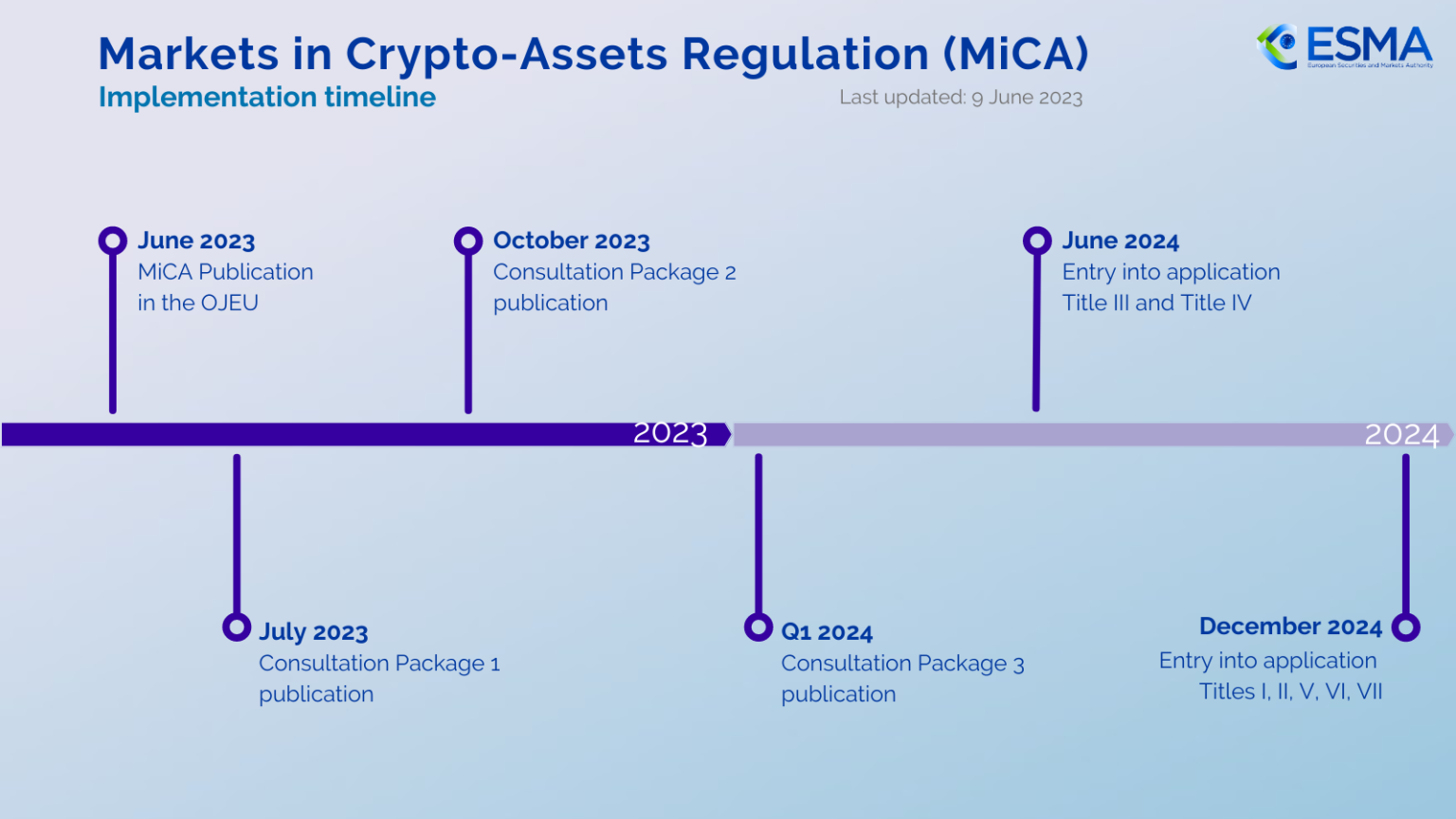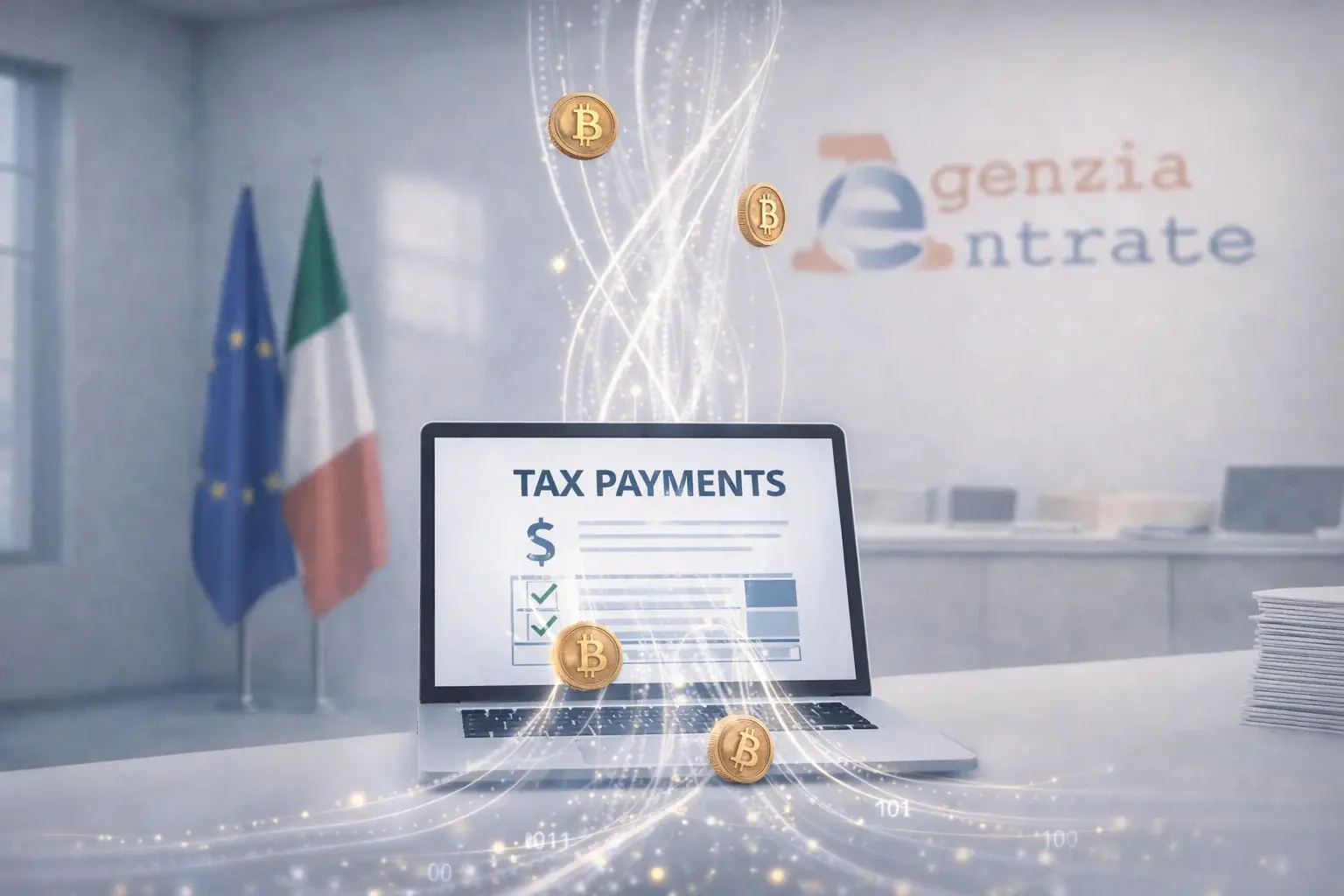The Regulation on Crypto Assets Markets (MiCA), adopted by the European Parliament and the EU Council, represents a significant step in the regulation of cryptocurrencies in the European Union.

MiCA aims to create a uniform regulatory framework for crypto assets, addressing existing legislative gaps and ensuring greater transparency and protection for investors. President Ursula von der Leyen emphasised the need to:
"a common approach with Member States on cryptocurrencies so that people understand how to make the most of the opportunities they create and address the new risks they may pose".
MiCA Objectives:
The objectives of this regulation are multiple:
- Cryptocurrencies;
- Consumer protections;
- Stablecoin.
Cryptocurrencies
The Crypto Assets Markets Regulation (MiCA) distinguishes between three main sub-categories of crypto assets, each subject to specific requirements:
Utility Tokens: These tokens provide digital access to goods or services via DLT (Distributed Ledger Technology) and are only accepted by the issuer. They have non-financial purposes related to the operation of digital platforms and services and are considered a specific type of crypto-asset.
Asset-Linked Tokens: These tokens aim to maintain a stable value by anchoring to various legal tender currencies, commodities, other crypto-assets They are used as a means of payment and store of value, offering stability to their holders.
Electronic Currency Tokens: These tokens are primarily intended to be used as a means of payment and aim to stabilise their value by pegging themselves to a single trust currency. They function similarly to e-money and are used as electronic surrogates for coins and banknotes. Unlike traditional e-money, they do not always provide holders with a claim against the issuer and may not be covered by Directive 2009/110/EC.
Regulatory Aspects of Electronic Money Tokens
To avoid regulatory circumvention, the MiCA regulation stipulates that any definition of "electronic money token" must be broad to include all crypto-assets with a single trust currency as the reference currency. Issuers of these tokens must be authorised credit institutions or e-money institutions and must guarantee redemption of the tokens at face value at all times to preserve user confidence.
Consumer Protection
To ensure consumer protection, potential buyers of crypto-assets must be informed about the features, functions and risks of the crypto-assets they intend to purchase. Issuers of crypto assets must produce, notify and publish an information document known as a 'Crypto Assets White Paper'. This document must contain mandatory information regarding:
- The issuer of the crypto-assets;
- The project to be realised with the funds raised;
- The public offering or admission to trading of the crypto-assets;
- The rights and obligations associated with crypto-assets;
- The underlying technology used for such assets;
- The risks involved.
The information in the white paper and marketing communications must be fair, clear and not misleading, ensuring fair and non-discriminatory treatment for all crypto-assets holders.
Requirements for Stablecoin Issuers
To ensure consumer protection and market stability, MiCA introduces several regulations for stablecoin issuers. These include:
Authorisation and White Paper: Issuers must be authorised by the competent authority and must publish a White Paper detailing the functioning and risks associated with their tokens. This paper must be clear, fair and not misleading.
Equity Requirements: Issuers of asset-linked tokens must maintain sufficient reserves to ensure the stability of the token. These reserves must be managed prudently to avoid negative impacts on the market.
Information: Issuers must provide up-to-date information on an ongoing basis, including details of reserves and any significant events that may affect the value of the token.
Conflicts of Interest: Issuers must adopt policies to identify and manage conflicts of interest, ensuring robust and transparent governance.
Impacts on the Market
MiCA regulation could pose significant challenges for stablecoin issuers. Industry participants, such as cryptocurrency analyst Jean-Marc Bonnefous, have expressed concerns about increased operational costs and administrative complexity resulting from compliance with the new rules. These restrictions could limit the number of issuers able to operate in the market, reducing diversity and innovation and leaving the market in the hands of a few large players.
Financial Penalties
Member states may choose not to establish rules for administrative penalties if violations are already subject to criminal sanctions in their national law. In such a case, they must notify the Commission, ESMA and EBA in detail of the relevant criminal law rules within 12 months of the entry into force of the Regulation and notify any subsequent changes immediately.
Member States must ensure that the competent authorities can impose at least the following administrative sanctions for violations:
For violations of MiCA rules there is provision for:
- Public statement of the person responsible and the nature of the violation.
- Injunction to cease the offending conduct.
- Fine penalties of up to twice the profits made or losses avoided.
- Fine penalties for legal persons of up to EUR 5 million or 3% of annual turnover.
- Sanctions for natural persons of up to €700,000.
Conclusions
The MiCA regulation represents an ambitious attempt to regulate the dynamic world of crypto-assets, placing particular emphasis on stablecoins. Although the regulatory framework introduced by MiCA aims to protect consumers and ensure market stability, the new rules could pose a significant challenge for industry players. However, a balanced implementation of these rules could foster transparency and trust in the cryptocurrency market, promoting a safer and more trustworthy environment for investors.
Subscribe to the newsletter from SpazioCrypto and never miss our updates on the Web3 world: you will receive our news selection via email every Sunday.
Cryptocurrency prices are subject to very rapid changes and may not reflect the current situation at the time of reading.








